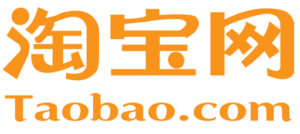When it comes to eCommerce prominence, China is in a league of its own, boasting an impressive 47% share of e-commerce sales, surpassing the nearest runner-up (Singapore) by almost 15 percentage points, and an 82.3% penetration rate—internet users having shopped online—a near 8% increase within the last 5 years. What's more, the vast majority of Chinese eCommerce transactions (around 80%) occur on eCommerce marketplaces, which offer merchants simple tools to manage their stores and customers a convenient and safe shopping experience.
Planning your China Market Entry? TMO has 10+ years experience helping brands implement fully-compliant China Cross-border eCommerce strategies.
As done since 2017, in this article we'll review our ranking of the 15 largest eCommerce platforms in China, most of which are third-party—or multi-vendor—marketplaces, along with a few examples of brand eCommerce websites.
For a look into CBEC specifically, check out our Top 5 Chinese Cross-Border eCommerce Platforms (Updated 2024)Selling in China from Overseas? These 5 marketplaces are a must for growing your cross-border eCommerce operation as a foreign brand.ranking of the Top Chinese Cross-border Marketplaces
This article was updated with the latest data from December 2024. While the absolute numbers from SimilarWeb should be taken with a grain of salt, the relative size of the eCommerce platforms should be quite accurate. It's worth noting that SimilarWeb's metrics only measure website performance, and do not account for traffic from mobile apps or mini-programs. So, although SimilarWeb provides valuable insights, we must keep in mind that it may not provide a complete picture of an eCommerce platform's overall performance.
1. Taobao (淘宝)
- Website: taobao.com
- Estimated Monthly Traffic: 200.4M
- Rank: #125 Global, #7 in China

While monthly visits declined from last year's 275.6M, Taobao still remains the largest C2C platform in China.
Already selling on Taobao? Boost your eCommerce Market Intelligence with our Long-term Marketplace Monitoring and Customized Reports containing data on sales volume and revenue by SKU, brand, merchant, and categories.
Having been founded in 2003 and solidified its position as the nation's biggest marketplace in 2005 after fierce competition with eBay. Taobao's significance in the Chinese e-commerce market was cemented by the introduction of AliPay, one of the country's two major payment systems.
Taobao also transformed the "Singles Day" shopping event into China's largest shopping festival, and indeed the largest in the world. However, rapid expansion came at a cost: for years, Taobao was the "Wild West" of Chinese e-commerce, plagued with a plethora of counterfeit goods, dubious quality, and even fraudulent activity. Thankfully, Taobao recognized the severity of the issue and implemented a series of measures to successfully tackle the majority of these problems. As a result, Taobao remains a major player in the Chinese e-commerce market and a trusted platform for millions of shoppers.
Taobao is also actively managing its content ecosystem. During the Double Eleven period in 2024, the number of users watching short videos on Taobao increased by 142% year-on-year, and the viewing time increased by 439% year-on-year.
2. JD (京东)
- Website: jd.com
- Estimated Monthly Traffic: 91.4M
- Rank: #311 Global, #13 in China

Another big contender in the Chinese market is JD.com. JD has been around for almost thirty years, starting as a computer equipment seller. The SARS epidemic of 2003 forced the company to take significant losses and shift its business model to online - something that would define its current success. Gradually expanding into CD, DVD, electronic appliances, and finally into a wide range of goods, JD became one of the biggest retail platforms it is today.
However, Jingdong's traffic and domestic/global rankings have both declined this year, with the average monthly traffic falling below 100 million for the first time in recent years, down about 31.46% from 133.4M in 2023. According to QuestMobile data, JD.com's MAU scale in November 2024 will be 570 million.
JD is keen on exploring new technologies, including autonomous, AI-driven vehicles and drones. While most of the innovations are still in development, JD already owns the biggest drone delivery infrastructure in the world. It has also been expanding its logistics network and investing in technology to improve delivery services.
The company has been actively partnering with international brands to bring more imported products to Chinese consumers. If you’re interested in selling through the platform, we also have a detailed guide onAn Alternative to Tmall: How to Sell on JD.com (2025 Update)Entry guide for Jingdong, one of China's largest online third-party marketplaces—overview, store types, requirements, process, and fees. how to start selling on JD.
3. TMall (天猫)
- Website: tmall.com
- Estimated Monthly Traffic: 73.9M
- Rank: #313 Global, #14 in China

TMall is a well-known online marketplace in China that specializes in business-to-consumer (B2C) sales. It was created as a spin-off of the C2C platform Taobao in 2011 and quickly established itself as one of the largest e-commerce platforms in China and globally. According to previous benchmarks using Alexa ratings, TMall was once the most popular website in China and the third most popular in the world. In recent years, the platform's performance has remained relatively steady compared to the other mainstream marketplaces.
One area in which TMall differentiates itself is its strict approach to counterfeit goods. To combat this issue, TMall requires a relatively high entry deposit and annual fees, with stores that maintain high ratings eligible for partial refunds.
TMall Global is a branch of TMall that is dedicated to helping foreign brands establish their presence in China. It is now the largest cross-border marketplace in China, offering foreign brands access to the Chinese market. How to Sell in China Online with Tmall Global Cross-Border (2025)Tmall Global is one of the central channels to enter Cross Border eCommerce in China. Here are the main things you need to know to start.For more information on the entry process, check out our recent article.
4. 1688 (Alibaba, 阿里巴巴)
- Website: 1688.com
- Estimated Monthly Traffic: 40.5M
- Rank: #823 Global, #41 in China

1688 (when said in Chinese, these numbers sound similar to Alibaba) is a platform, services domestic B2B sales. Most of the merchants on the platform are factories and manufacturers, selling their products in bulk. 1688 is the largest wholesale platform in China. Technically, one does not have to be a big enterprise to buy in 1688 – it is used by small businesses and even individual buyers who are looking for good deals and are ready to buy in a relatively larger amount.
As of December 2023, the number of 1688 buyer members will reach 200 million, and the number of Class B buyers will be 65 million. In 2024, 1688 will focus on promoting service upgrades in four aspects of buyer purchasing experience: full credit, full shipping, estimated delivery, and credit refund.
5. SMZDM (什么值得买)
- Website: smzdm.com
- Estimated Monthly Traffic: 34.67M
- Rank: #2.1K Global, #66 in China

SMZDM - the name is a Chinese phrase that can be translated as “What's Worth Buying” (什么值得买) was created by Beijing company Worth Buying Technology in 2015.
For 2024, SMZDM's average monthly traffic has increased, with a relatively stable performance. In the first half of 2024, What’s Worth Buying launched the AI Agent shopping assistant "Xiaozhi" to help users efficiently screen products and content through conversation.
The website is a combination of eCommerce and a "consumer encyclopedia", building content the same way Wikipedia does. Portal provides real-time information on quality online shopping deals and original shopping guides. Its goal is to become the "first stop for quality consumption" in the minds of consumers. The content represented on the platform covers multiple areas from electronics, home life, fashion, and sports, to tourism, cars, and credit cards.
6. Pinduoduo (拼多多)
- Website: pinduoduo.com
- Estimated Monthly Traffic: 19.69M
- Rank: #2.6k Global, #80 in China

Pinduoduo is a relative newcomer to the e-commerce industry, having been founded in 2015. Despite its short history, it has quickly become the world's fastest-growing company, with a remarkable annual growth rate of up to 50%, catching up with the user base volume of Alibaba and JD.
Although Pinduoduo ranks only 6th in this list, it is actually one of the three giants in China's e-commerce market. This is because the traffic of Pinduoduo's APP and WeChat applet is not covered by SimilarWeb's web traffic statistics. According to QuestMobile data, in November 2024, Pinduoduo's MAU (monthly active users) was 720 million, Taobao was 960 million, and JD.com was 570 million.
Pinduoduo is a vibrant platform that has introduced several eCommerce innovations, such as team purchases, social commerce programs, and a C2M business model, which allows consumers to directly influence the manufacturers and products they offer. It is also the largest marketplace for agricultural produce in China, connecting Chinese farmers with urban consumers.
7. Meituan (美团)
- Website: meituan.com
- Estimated Monthly Traffic: 10.9M
- Rank: #4.8K Global, #128 in China

Meituan started as a group buy site that was founded in 2010. After a series of successful consolidations with other services, Meituan became the biggest deal-of-the-day group buy company in China, accounting for about 60% of the market.
Although Meituan Group Buying's market share in 2024 is still high, it is no longer above 50%. Meituan Youxuan's share of the community group buying market is 32%, while Duoduo Maicai's market share is 44%. Meituan's market share in the instant retail sector is close to 50% and is still rising.
The company diversifies its offers into all kinds of services: from hotel and ticket bookings to bike rentals. It also places a huge importance on customer service and a convenient refund policy. Meituan merged with Dianping in September 2020, securing its position at the top even more. The company was renamed to Meituan-Dianping.
8. Dianping (大众点评)
- Website: dianping.com
- Estimated Monthly Traffic: 8.0M
- Rank: #9.2K Global, #233 in China

Technically not an eCommerce marketplace, Dianping still plays an immense role in the Chinese online ecosystem as the biggest review website. Every service can be reviewed – from restaurants and spas to pet shops and wedding services (although food is by far the most popular topic).
9. Goofish (闲鱼)
- Website: goofish.com
- Estimated Monthly Traffic: 4.3M
- Rank: #11.7k Global, #364 in China

Goofish (or "Xianyu" in Chinese) is an idle trading platform under Alibaba. Members can log in with their Taobao or Alipay accounts without going through the complicated process of opening a store, and can achieve many functions including one-click reselling of "purchased items" in their personal Taobao accounts, taking photos and uploading second-hand idle items with their mobile phones, and online transactions. Individual sellers can obtain three major advantages: greater exposure, more efficient circulation channels, and more advantageous logistics prices, allowing idle items to be put to good use as quickly as possible in the hands of new owners from all over the world. In addition, the backend of the Goofish platform has been seamlessly connected to the Taobao credit payment system, thereby ensuring transaction security to the greatest extent.
In May 2023, Goofish APP announced that Goofish Community will officially implement a charging policy for some merchants from June 6, 2023. In April 2024, its monthly active users reached 162 million (APP), a year-on-year increase of 19.1%. Among major mainstream e-commerce platforms, young people have the most prominent preference for Goofish. In addition, high-value users with online spending power of more than 2,000 yuan accounted for 52.7%, significantly higher than the level of the entire network.
10. VMall (华为商城)
- Website: vmall.com
- Estimated Monthly Traffic: 4.5M
- Rank: #14.2K Global, #383 in China

VMall is an example of an eCommerce platform developed and operated by one brand – in this case, Huawei. It is focused on Huawei products – mobile phones, laptops etc, but also partners with smaller, less prominent brands, that do not compete with Huawei directly, but can enrich the catalog. The monthly traffic of Huawei Mall increased by about 29.14% compared with the previous year.
11. Vipshop (唯品会)
- Website: vip.com
- Estimated Monthly Traffic: 2.5M
- Rank: #17K Global, #458 in China

Vip.com (previously vipshop.com) started operating in 2008 and based its success on the model “Deep discounts - limited time offers – Quality guarantee”. Up until a few years ago, it was getting closer to the top of Chinese eCommerce, getting to third place after TMall and JD.
Recently, VIP.com has been investing in artificial intelligence and data analytics to enhance its personalized shopping experience and has expanded its product offerings beyond fashion and beauty. According to statistics, Vipshop had 44.3 million active users in the second quarter of 2024, a year-on-year decrease of 1.3 million.
12. Dangdang (当当)
- Website: dangdang.com
- Estimated Monthly Traffic: 1.9M
- Rank: #26.4K Global, #661 in China

Similar to JD, Dangdang started its path to success by selling electronics and digital goods. Later it moved to include other categories – from snacks to apparel and beauty products, and in recent years focused on improving its logistics and delivery services. In 2023, Dangdang.com's overall sales increased by 5%, Douyin stores increased by more than 30%, and Pinduoduo stores increased by 11%. The multi-platform coverage strategy has achieved remarkable results.
13. Suning (苏宁)
- Website: suning.com
- Estimated Monthly Traffic: 1.7M
- Rank: #30K+ Global, #1019 in China

Suning started as a chain of domestic appliance stores but ended up expanding its offer to all sorts of everyday items – from babycare products to books. Suning has one of the strongest logistical systems in China with 10.000 physical stores, and 100.000 employed truck drivers. It also operates the country's biggest state-of-the-art warehouse served by fully automated unmanned robots.
However, Suning.com’s traffic has dropped by more than 50% compared to the previous year, and its corresponding global and domestic rankings have also dropped significantly.
Special Mention: Social Commerce Channels in China
14. Douyin (抖音)
- Website: douyin.com
- Estimated Monthly Traffic: 270.5M*
- Rank: #96 Global, #5 in China

Douyin, also known as “TikTok for China” in Western countries, was originally a short video social platform, developed and launched by the company ByteDance in 2016.
The secret of Douyin eCommerce’s success is the platform's strong user base and highly intelligent algorithm system. Its "interest-based e-commerce" uses Douyin's algorithm and data analysis technology to recommend products that match users' interests and needs.
In 2023, Douyin's e-commerce sales have exceeded 2 trillion yuan, a year-on-year increase of more than 60%. In 2024, Douyin's e-commerce GMV increased by 46% year-on-year, and the live broadcast e-commerce market size is close to one trillion. With its strong traffic advantage, Douyin has become the first choice for brand merchants. The report shows that the Douyin platform attracts up to 3.8 billion traffic every day, and the number of new merchants has increased by 83% year-on-year.
Another aspect of Douyin’s model is combining social interactions and shopping in one medium. Users can easily complete a shopping experience by watching videos, sharing products, placing orders, and making purchases. Douyin's interest-based eCommerce is becoming an important trend in the development of eCommerce in the future. As a must for a successful China eCommerce Strategy, TMO provides brands with expert Social Commerce Solutions for a multichannel approach.
15. Xiaohongshu (小红书)
- Website: xiaohongshu.com
- Estimated Monthly Traffic: 97.9M*
- Rank: #195 Global, #10 in China

Xiaohongshu (Little Red Book) is a unique platform in that it began as a community of reviewers where people could share their reviews of travel, restaurants, events, and shopping. The focus on shopping reviews was a key starting point for the platform's evolution into a fashion, beauty, and lifestyle marketplace. Today, Xiaohongshu operates as a 100% app-based platform, with the desktop version of their website serving essentially as a link to their app download page.
We have a more detailed article about Revealing the Strategy Behind Chinese Social Commerce App XiaohongshuHow can eCommerce companies use the Chinese app Xiaohongshu for their business? What is the best strategy? Read on to learn the answers!Xiaohongshu's strategy on our website.
In 2024, the number of new merchants entering Xiaohongshu's e-commerce platform will increase by 8.1 times year-on-year, and the number of live broadcast rooms with over one million viewers per show will triple that of last year. The number of buyers will increase by 8.1 times compared to 2023, and the number of users purchasing in buyers' live broadcast rooms will increase by 3.4 times. In 2024, Xiaohongshu has achieved remarkable results in user growth and traffic: as of mid-2024, Xiaohongshu's monthly active users (MAU) have reached 320 million, and daily active users (DAU) have reached 120 million.
Is Amazon Available in China?
- Website: amazon.cn
- Estimated Monthly Traffic: 3.4M
- Rank: #12.3K Global, #328 in China
Amazon’s history of trying to enter the Chinese market goes back as far as 2004 when the Chinese branch was established. Fast forward 15 years – the international giant announced its withdrawal from the Chinese domestic market. Amazon still keeps its presence in China concerning the cross-border market, electronic books, logistical, and cloud hosting services (AWS).

With this, we conclude our list of the 15 prominent Chinese eCommerce marketplaces eCommerce websites. The Chinese landscape is very dynamic. Even if the list of players is more or less settled, the battle for the few several lines is not over – we witnessed an amazing rise of Pinduoduo almost to the very top a couple of years before and a similar success story from Douyin this year. We will keep updating this list regularly to keep you up to date with the latest developments in this exciting ecosystem.
Entering China's Online Market through a Multichannel Approach
China is home to some of the biggest mobile and social media users on the planet, and its explosive economic growth in recent years has translated into huge opportunities for foreign brands conducting cross-border eCommerce.
If you are looking for an eCommerce agency to assist you in your China business expansion, or want to explore other alternatives to grow in the market, reach out to us to learn more about our China eCommerce solutions, from branded eCommerce website development to social commerce and other services.













